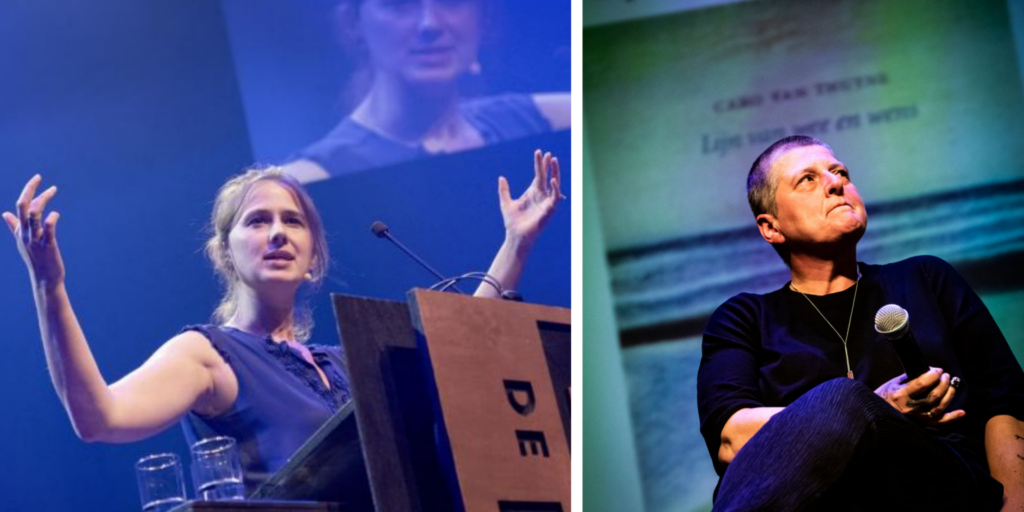Two female Belgian authors have been longlisted for the Libris Literature Prize for Dutch literature.
There were 189 books submitted and 18 have been longlisted for the prestigious Libris Literature Prize, organised by the independent Dutch bookshop of the same name. Belgian writers Caro van Thuyne and Maud Vanhauwaert are the only non-Dutch writers to appear on the list for their respective novels 'Bloedzang' and 'Tosca'.
The other nominees are: Cobi van Baars, Sacha Bronwasser, Ramy El-Dardiry, Rob van Essen, Paul Gellings, Esther Gerritsen, Elodie Heloise, Roxane van Iperen, Gilles van der Loo, Renée van Marissing, Marente de Moor, Frank Nellen, Richard Osinga, David Pefko, Ilja Leonard Pfeijffer, and Tommy Wieringa.
The prize aims to honour the best original novel in Dutch. A shortlist of six books will be released on 11 March. The winner, announced on 13 May, will receive €50,000 while runners-up will receive €2,500.
Van Thuyne made her literary debut in 2018 with 'We', a short story collection that went on to win the Anton Wachter prize. She won the The Bronze Owl in 2021 for her debut novel 'Line of Woe and Wish'.
'Bloedzang' ('Bloodsong' in English) tells the story of a complicated mother-daughter relationship that intensifies as the protagonist's mother falls terminally ill and loses her ability to speak. Semi-autobiographical, 'Bloedzang' ties together a host of feminist and familial themes and has been praised for its "raw, sensual and expressive language".
Related News
- 'Giving voice to the people': Brussels will get its first city poet in 2024
- 'Do you read Belgian?' campaign kicks off to promote Belgium's literature
Vanhauwaert is a poet, actress and writer. She was Antwerp City Poet in 2018 and 2019 and is currently resident poet at KU Leuven. She has published numerous award-winning poetry collections including 'I Am Possible' (2011) and 'The City in Me' (2020).
'Tosca' combines poetry and fiction in an exploration of a toxic relationship that builds up between a poet and a translator as the latter attempts to understand the numerous crises faced by the former through her work.
Vanhauwaert writes regular opinion pieces for daily Dutch-language newspaper De Morgen.

